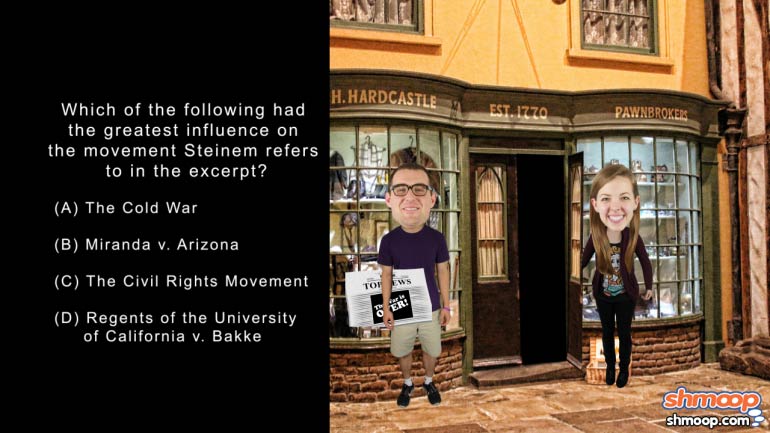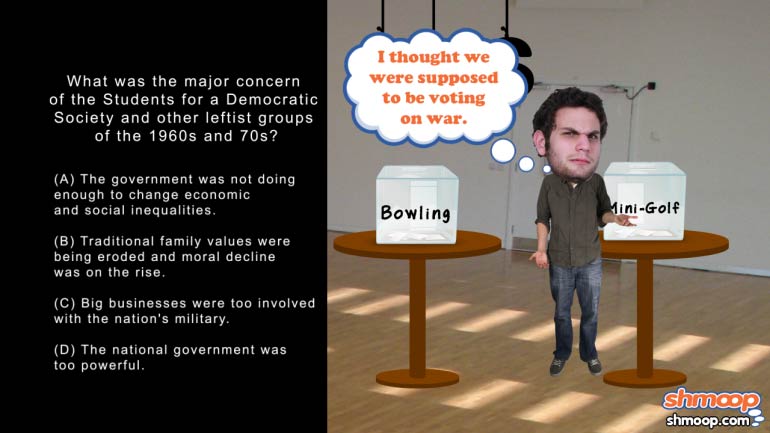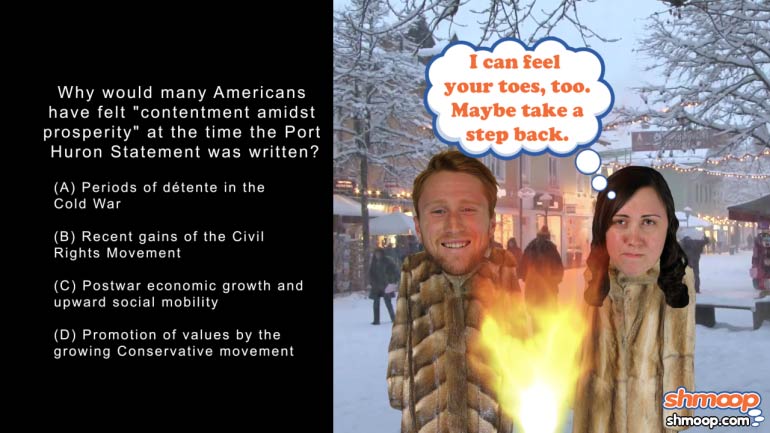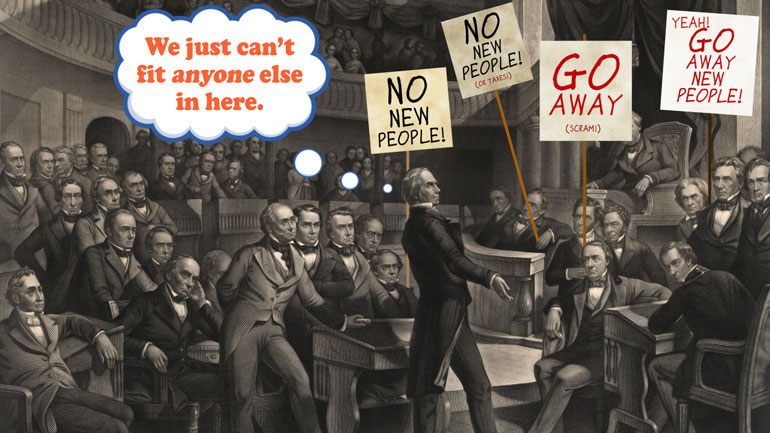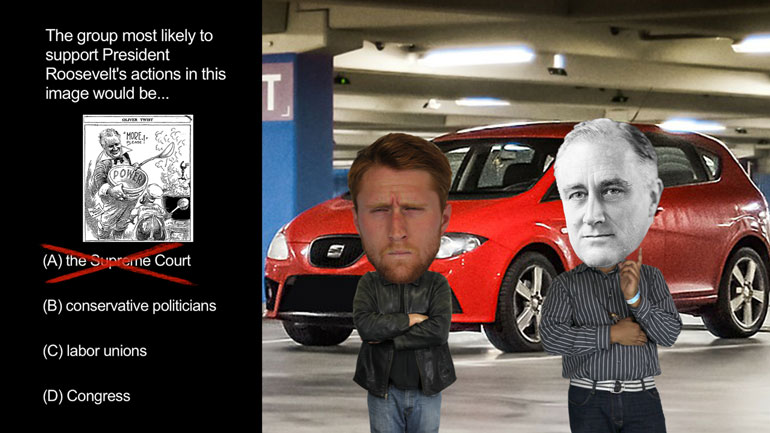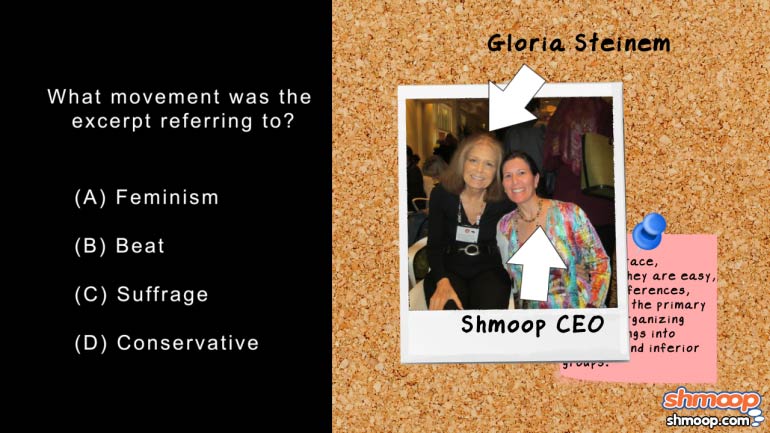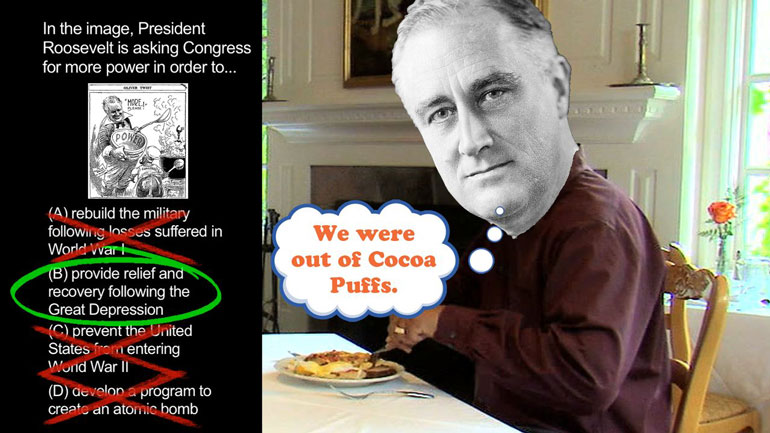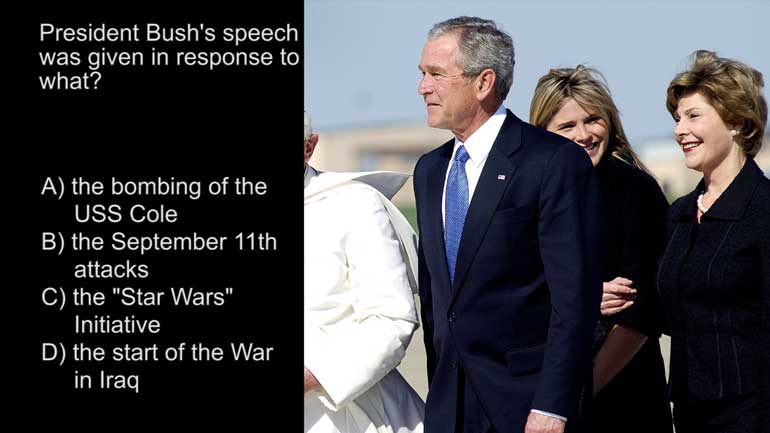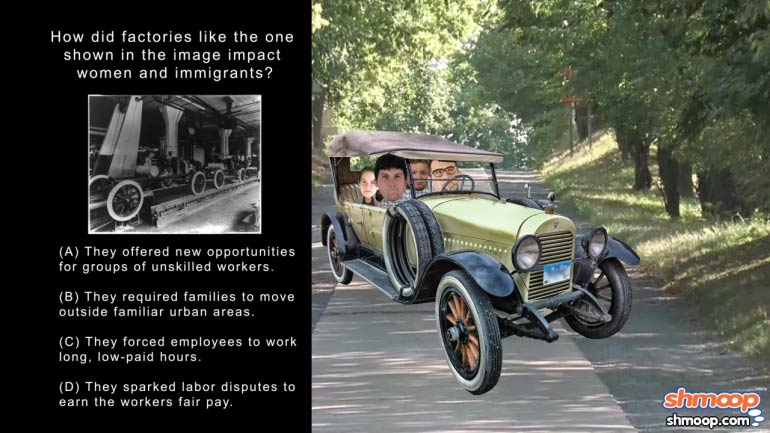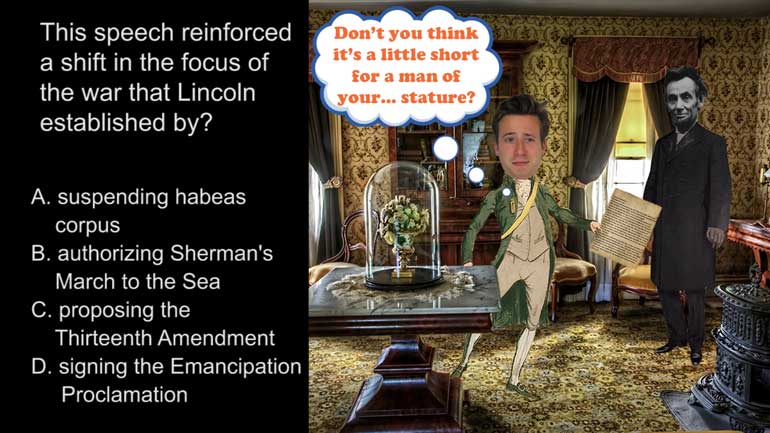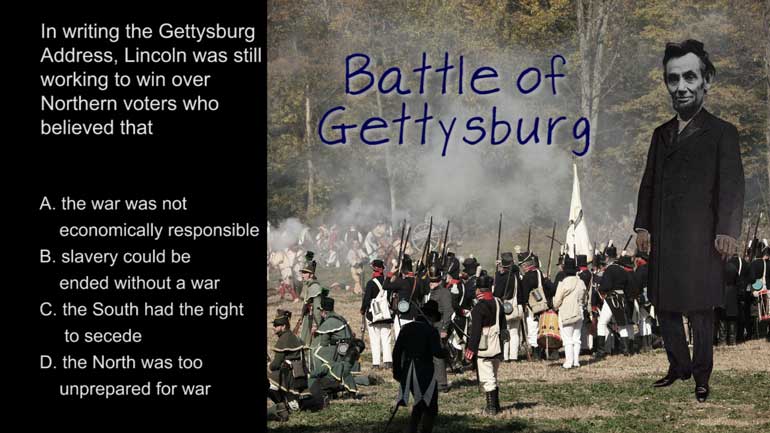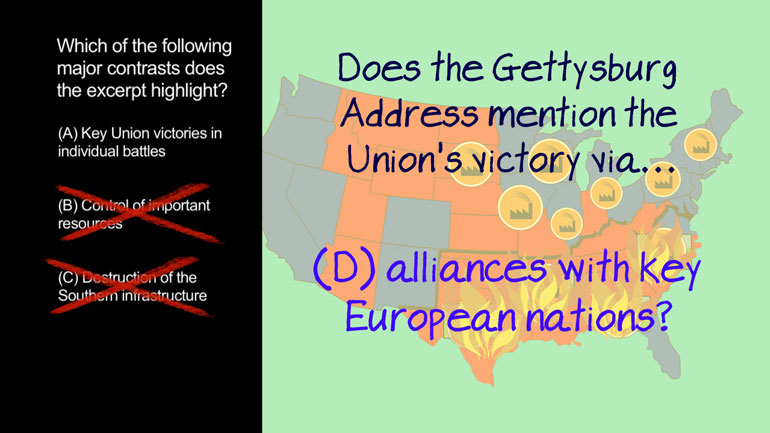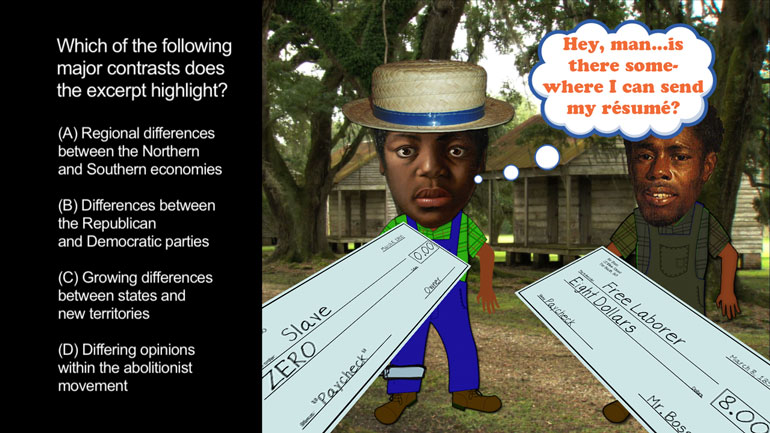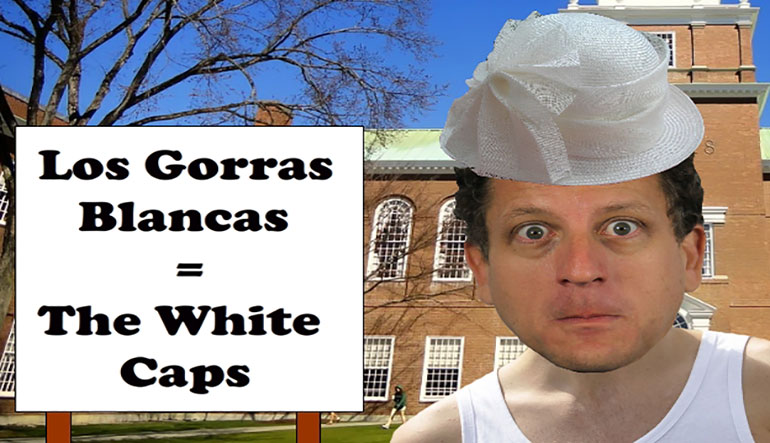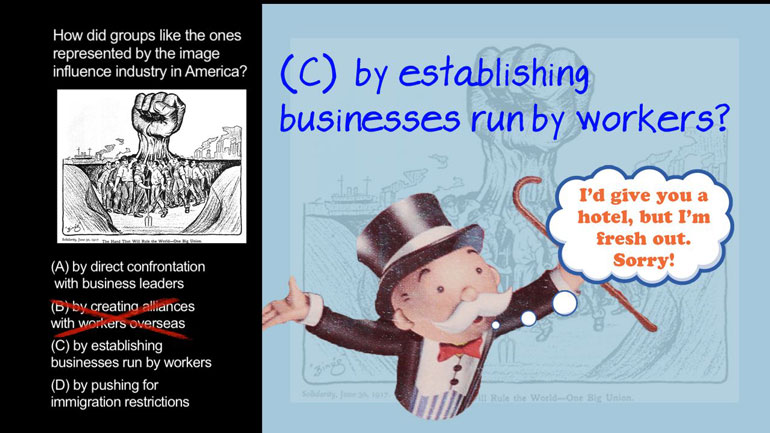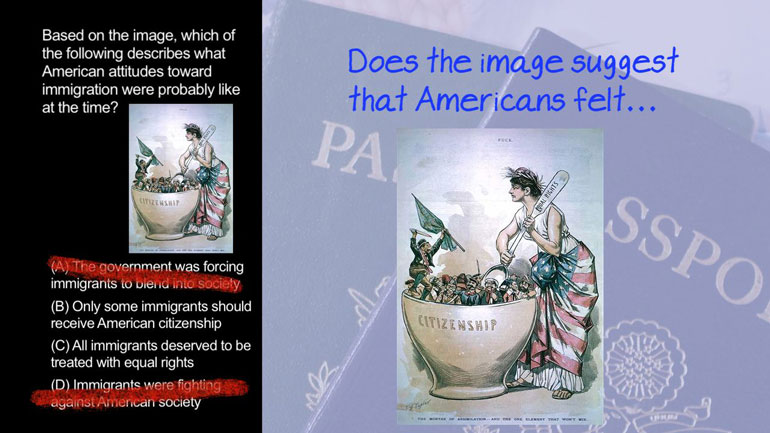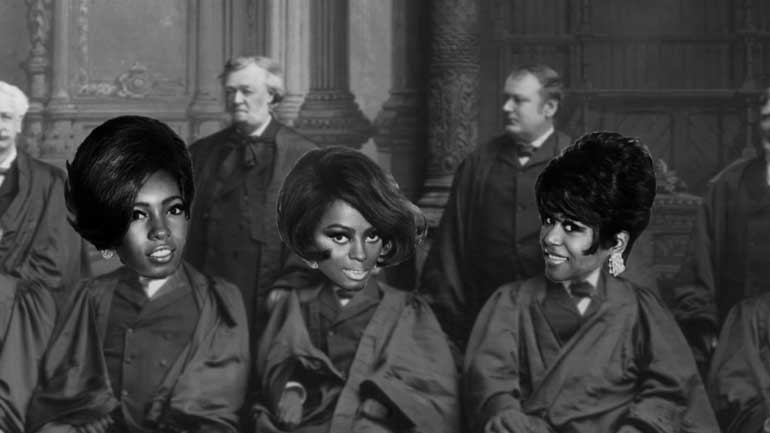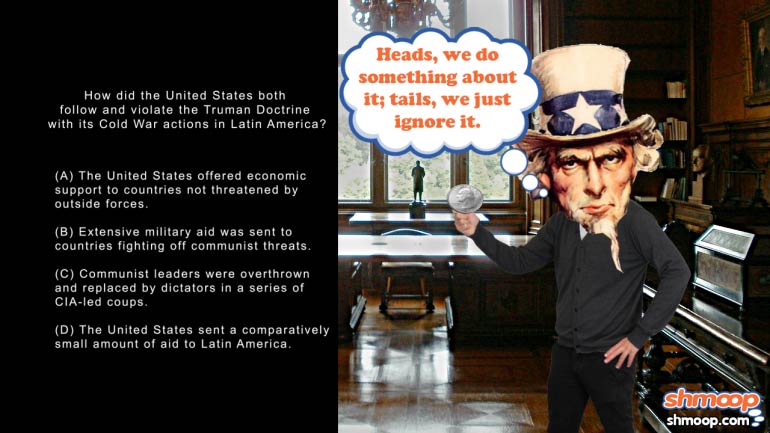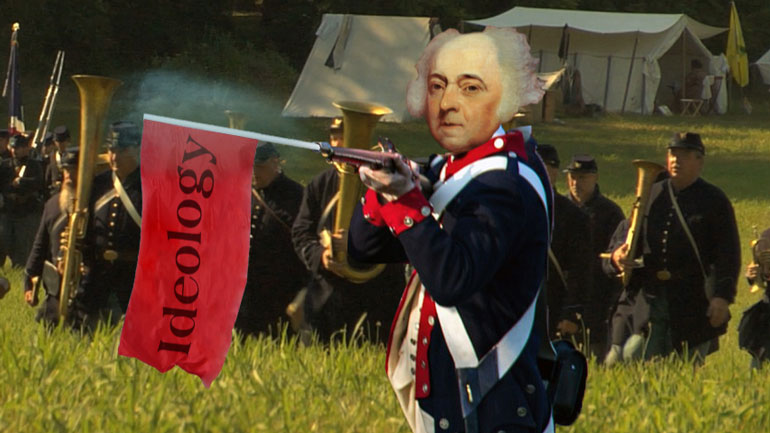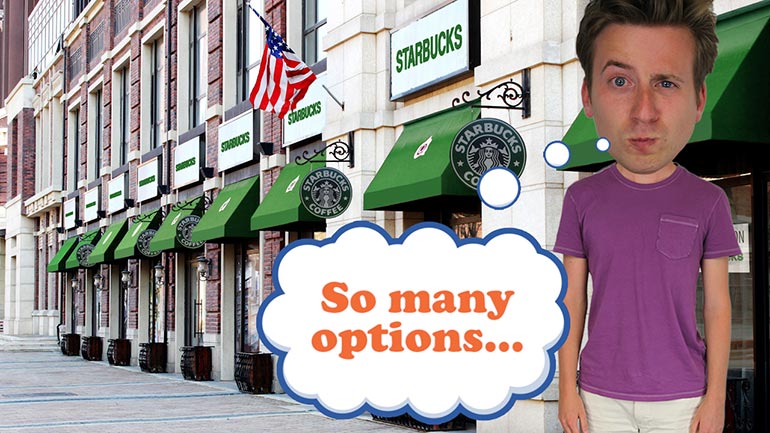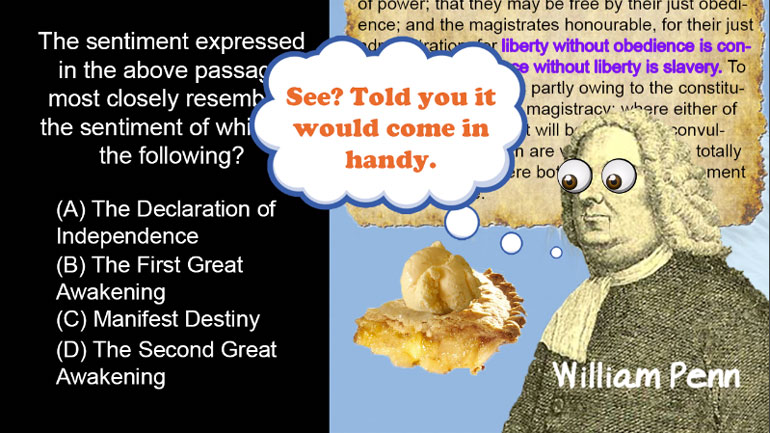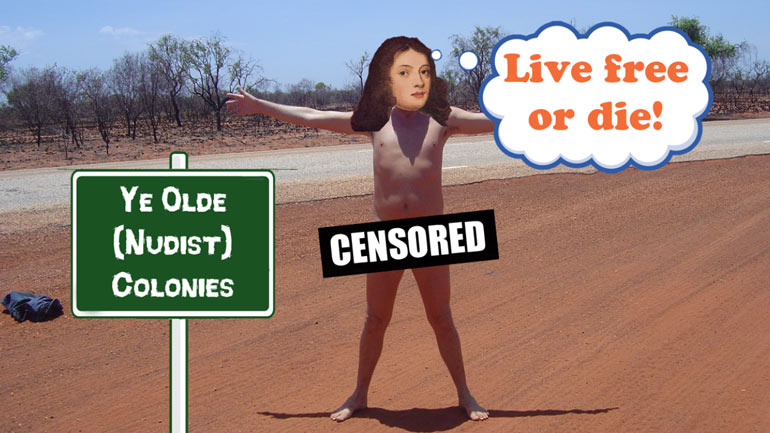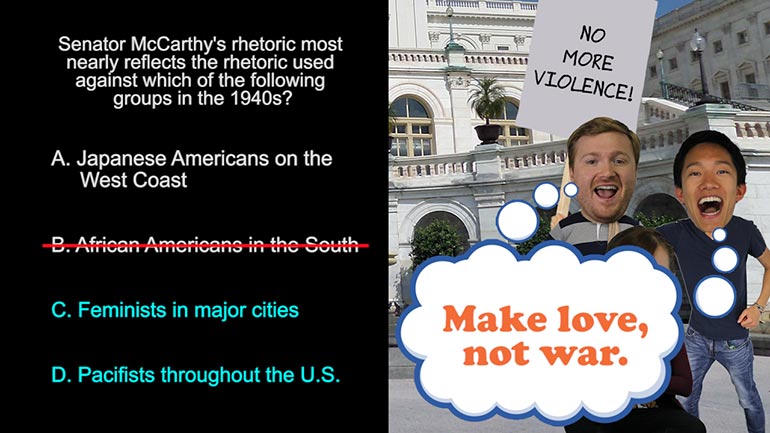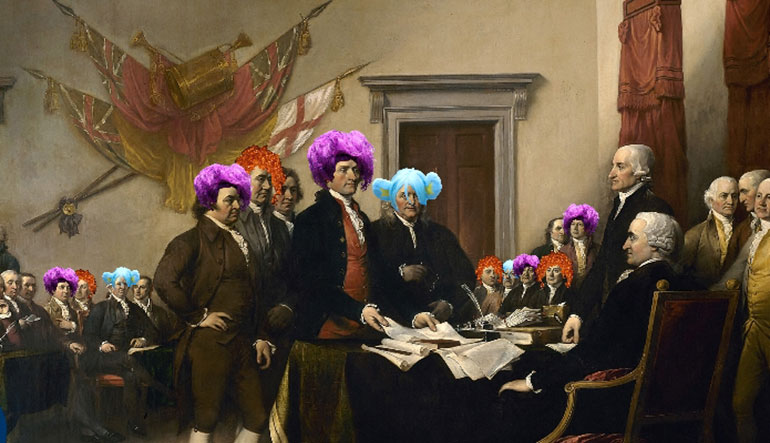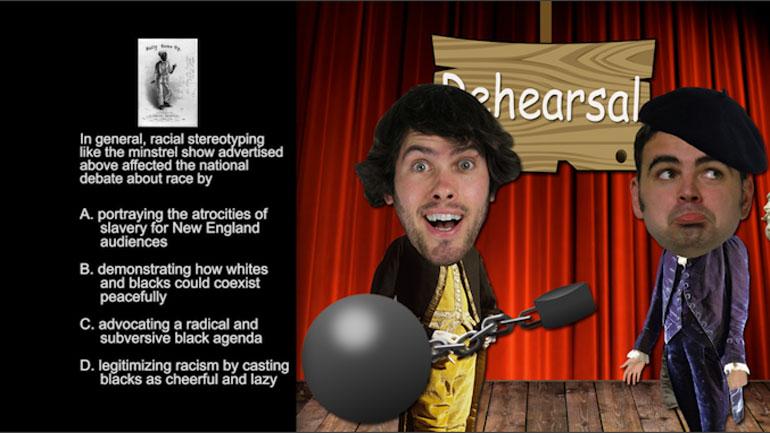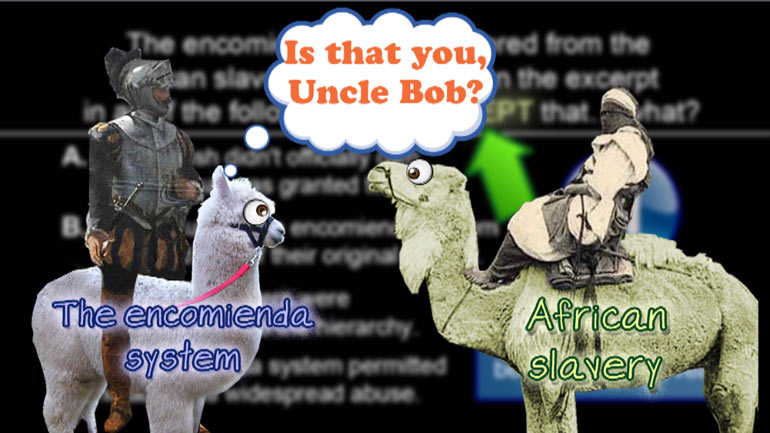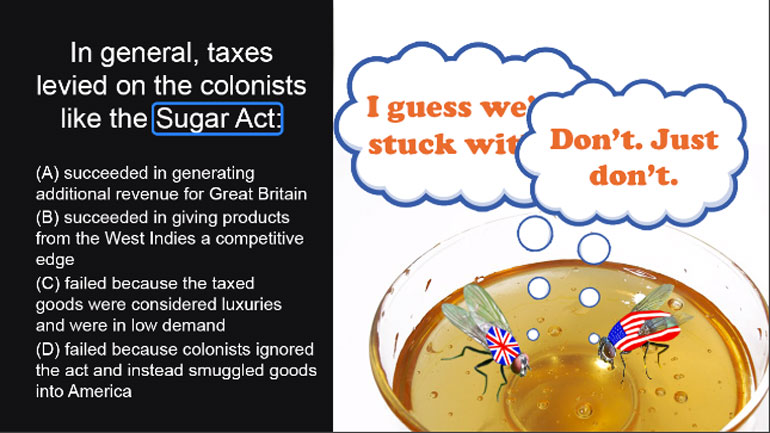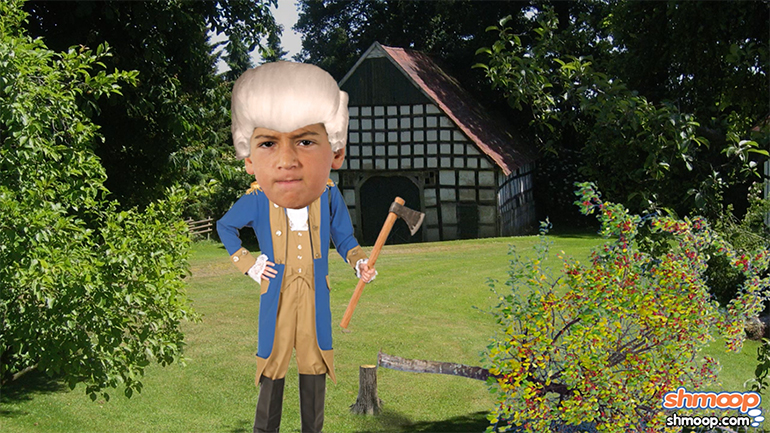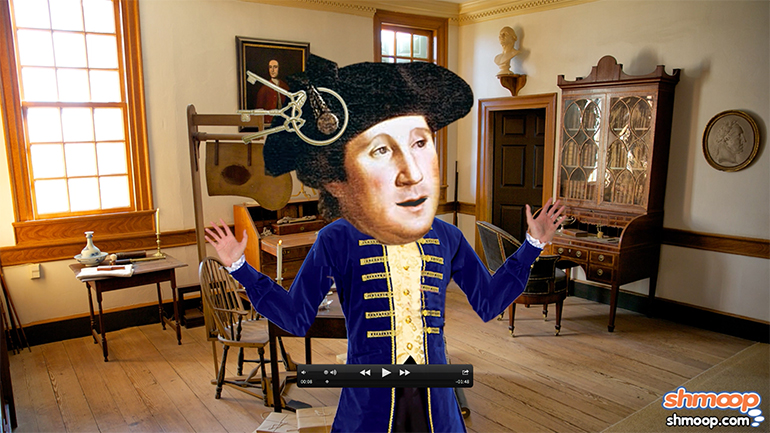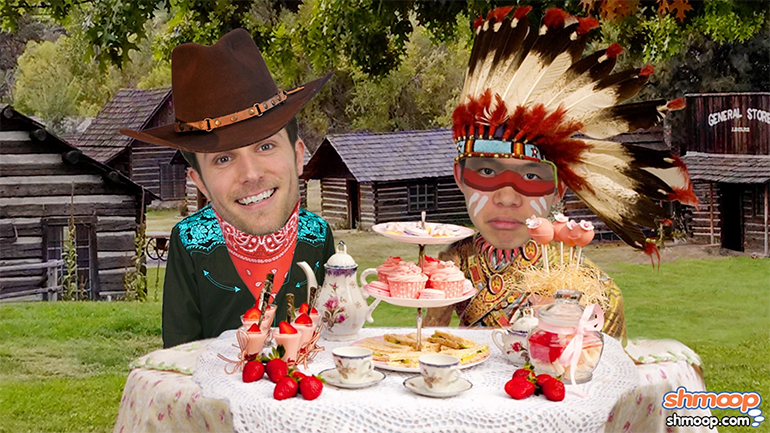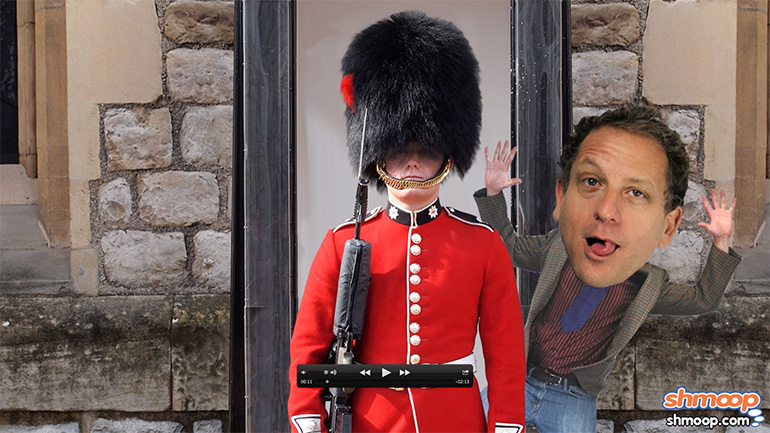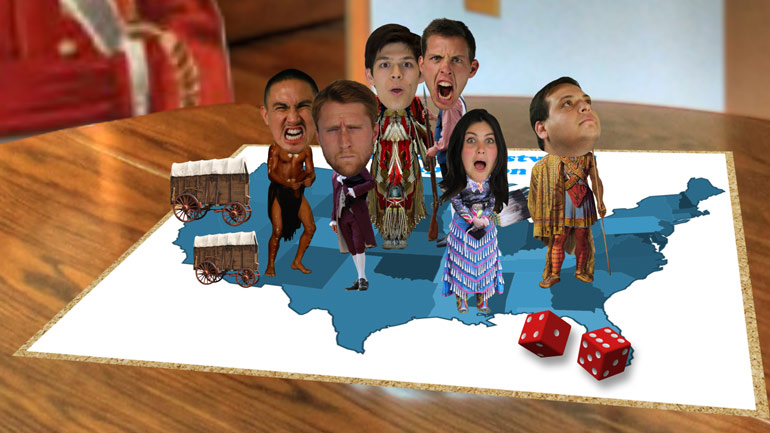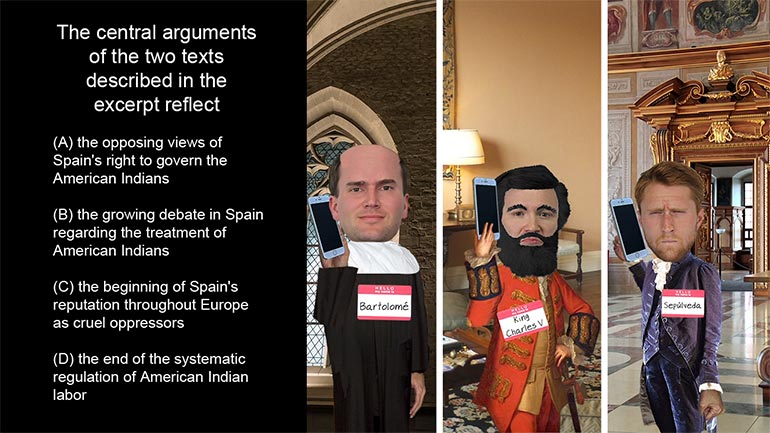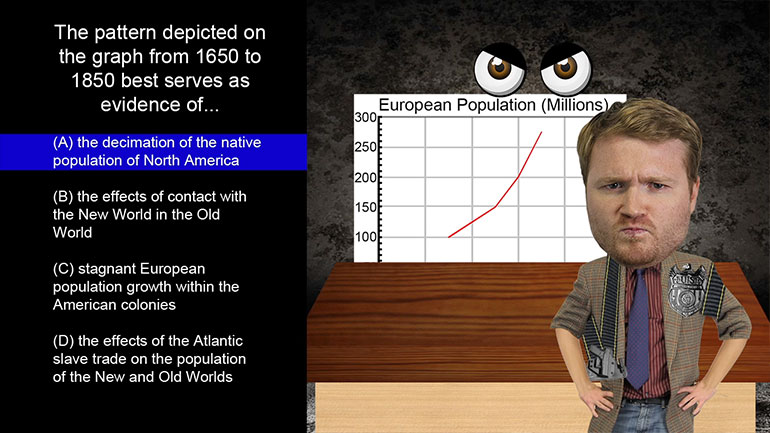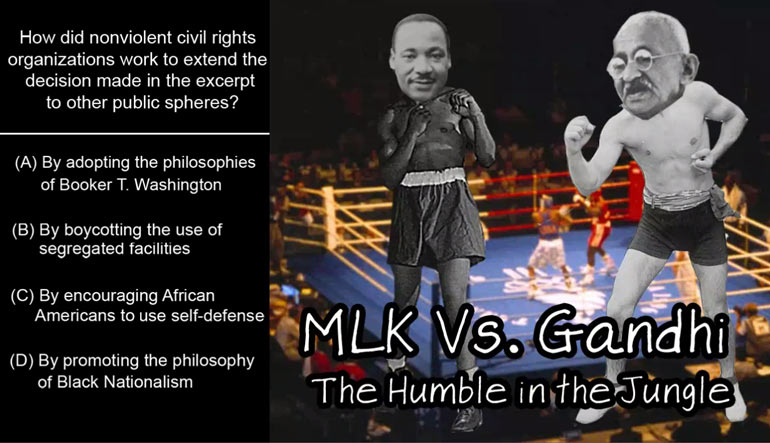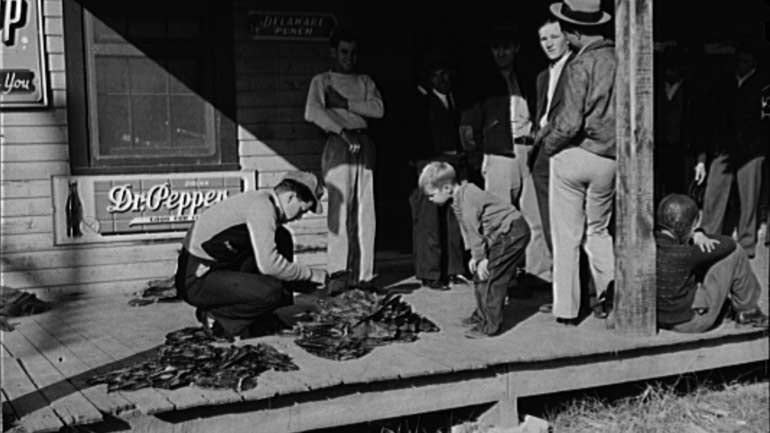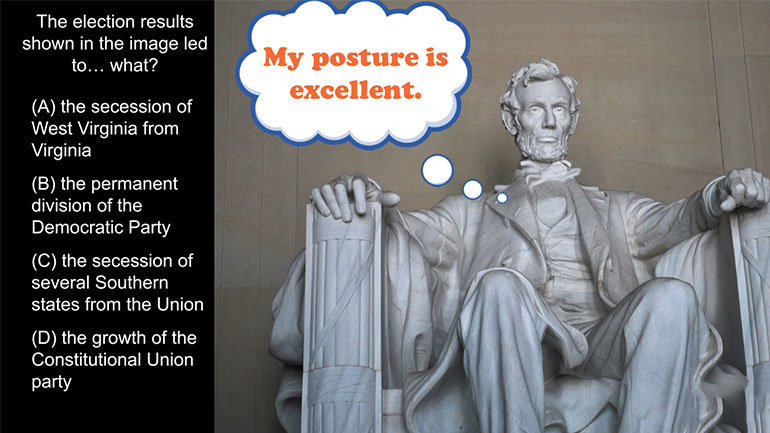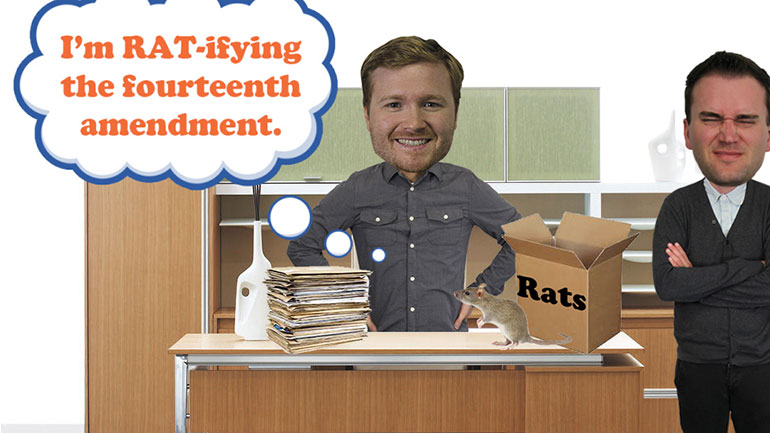ShmoopTube
Where Monty Python meets your 10th grade teacher.
Search Thousands of Shmoop Videos
AP U.S. History Videos 294 videos
AP U.S. History Exam 2.48. Which of the following had the greatest influence on the movement Steinem refers to in the excerpt?
The appeal of city living has always been strong. Can you figure out why new immigrants chose to live in big cities? Hint: they weren't trying to b...
AP U.S. History Exam 2.54. Given the excerpt, many critics of the war on terrorism believed that...what?
AP U.S. History Exam 2.11 178 Views
Share It!
Description:
AP U.S. History Exam 2.11. How does the excerpt reflect the colonists' ability to defeat the British in the Revolutionary War?
Transcript
- 00:00
[ musical flourish ]
- 00:03
And here's your Shmoop du jour, brought to you by ideology,
- 00:06
the art of fortune-telling from a driver's license.
- 00:10
Yeah. Sorta.
- 00:11
All right, give this excerpt a read.
Full Transcript
- 00:12
[ mumbles ]
- 00:18
All right, and the question:
- 00:19
How does the excerpt reflect the colonists' ability
- 00:22
to defeat the British in the Revolutionary War?
- 00:25
And here are your potential answers.
- 00:27
[ mumbles ]
- 00:32
[ mumbling continues ]
- 00:35
All right, the colonists may not have had the guns and glory
- 00:37
of the British empire, but they had more than a few tricks
- 00:39
up their raggedy, homemade sleeves
- 00:42
during the fight for American independence.
- 00:43
So does the excerpt suggest that colonists were able to
- 00:46
defeat the British in the Revolutionary War because A-
- 00:48
the colonists were familiar with the North American landscape?
- 00:52
Well, in addition to having the backing of other European nations,
- 00:55
the colonists had quite the advantage over the British
- 00:57
in their familiarity with the North American landscape.
- 01:00
But neither of these is mentioned in the excerpt,
- 01:03
so we need to land somewhere else.
- 01:04
Does the passage claim colonists were able to defeat the British
- 01:07
because D - the colonists had strong, well-trained military leadership?
- 01:12
Well, the rebels had several things pointing in their favor,
- 01:15
but a well-trained military was not one of them.
- 01:17
So if we drill B out of existence, then
- 01:19
that means the rebels were able to win the Revolutionary War
- 01:22
because C - the colonists were fighting with passion
- 01:25
for a personal ideology.
- 01:27
John Adams' speech suggests the colonists were fighting for
- 01:30
their own personal freedoms and that passion gave them
- 01:33
a distinct advantage over the British military,
- 01:35
who just basically hired dogs to go
- 01:38
fight a war they didn't really care about. So C is the right answer.
- 01:41
This ideological zeal helped fuel the rebels through
- 01:44
several terrible winters, but that taste for freedom might have
- 01:47
been a little heartier if it came with a loaf of bread and a warm cup of soup.
- 01:51
[ sneeze ]
Related Videos
Ever heard of a "living document"? They eat and breathe just like the rest of us! They even walk around on their own two legs. Okay, fine—maybe t...
If the Puritans had gotten their way, religion would play a much larger role in lawmaking these days. Want to know more? Watch the video for all th...
What happened between the creation of the Articles of Confederation and the ratification of the current U.S. Constitution? This video analyzes the...
The Modernists thought the world had a lot of problems, and they were intent on fixing them—or at least talking about fixing them. Unfortunately,...
This video explains Federalism and the quest for a fair balance between state and national power. It covers the progression and compromises of Fede...
